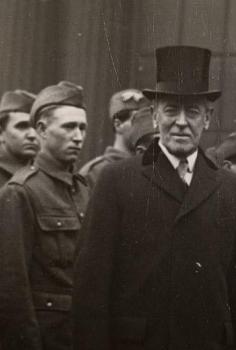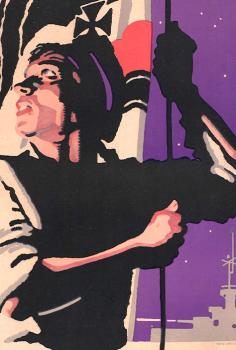Image

Creators
Stanford History Education Group
The Sedition Act of 1917 limited freedom of speech. President Wilson and Congress claimed political dissent would harm the country's war effort. In this lesson, students consider whether critics of the First World War were anti-American as they read anti-war documents from prominent socialist leaders Eugene Debs and Charles Schenck, as well as excerpts from the Sedition Act and a Supreme Court ruling upholding the act.







